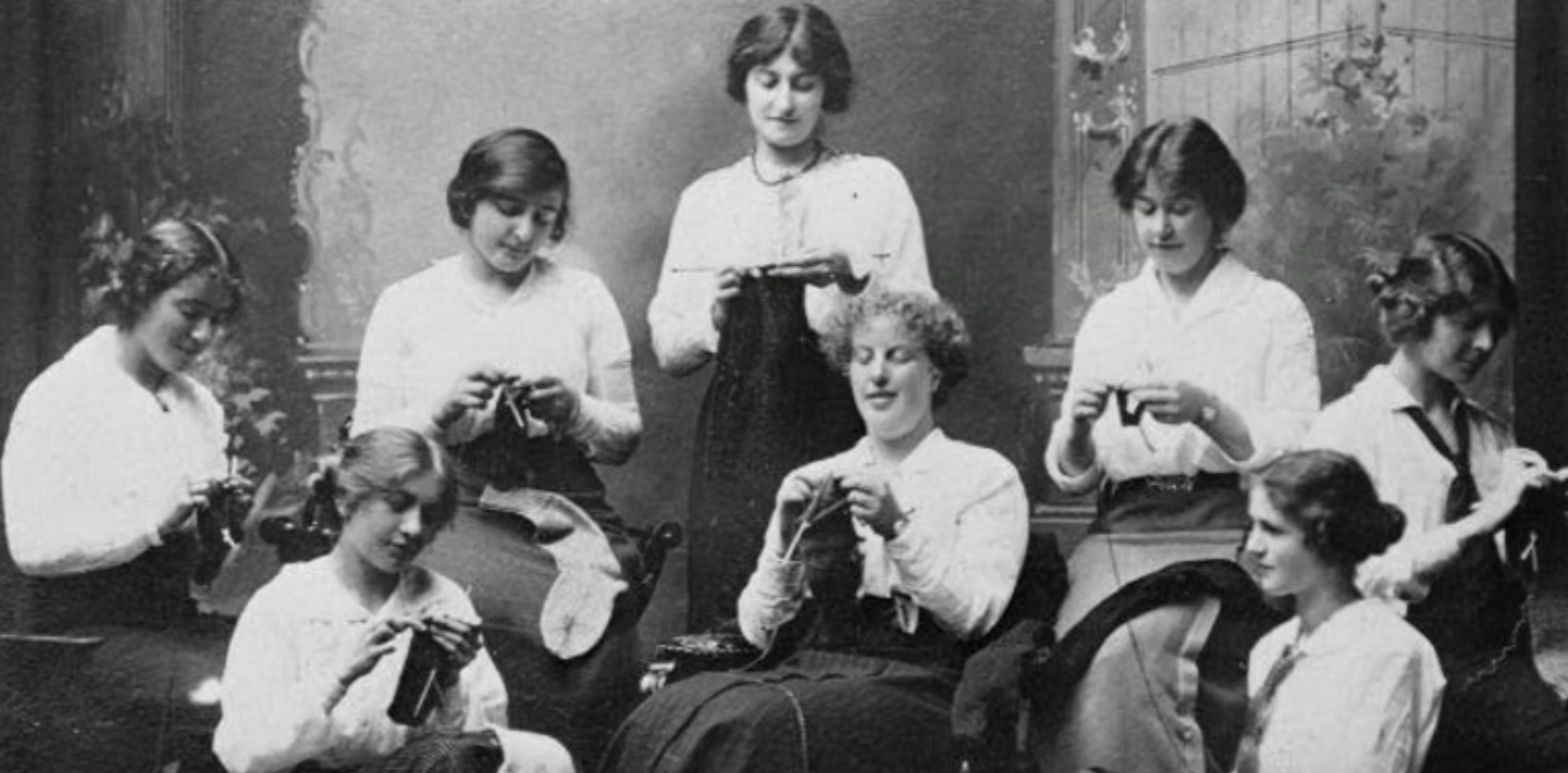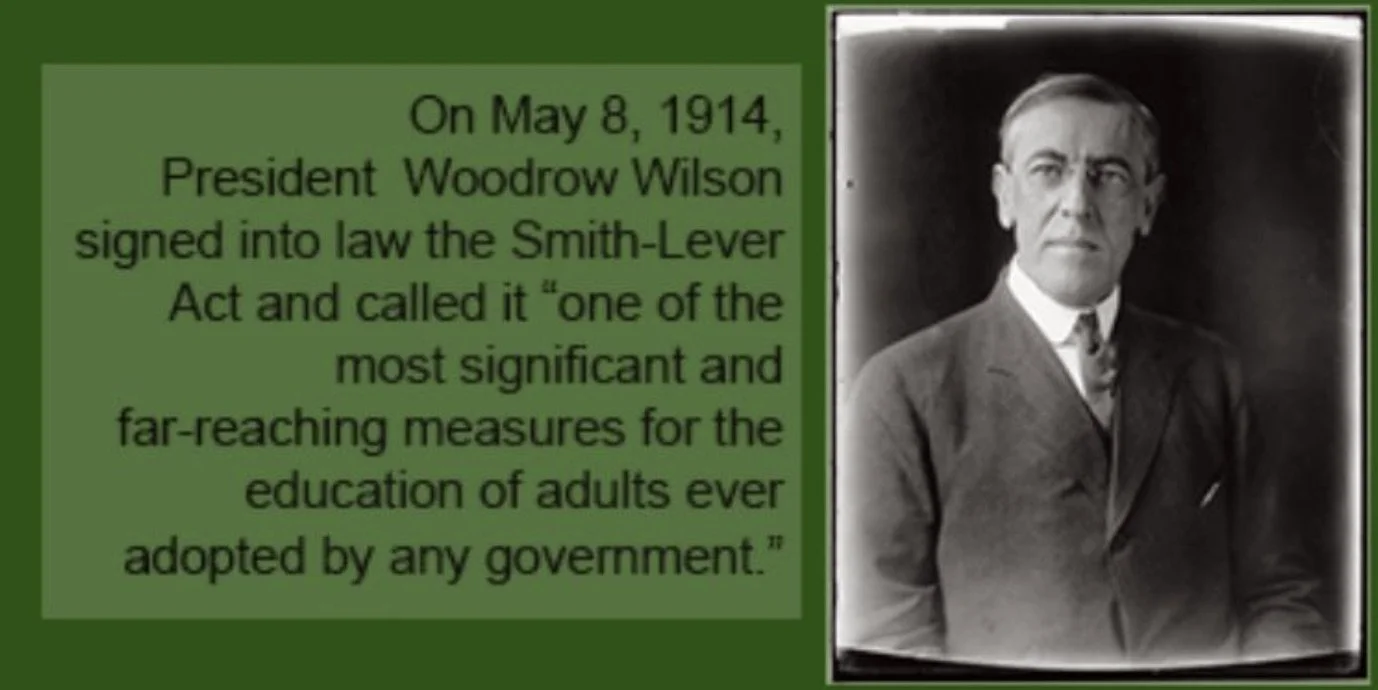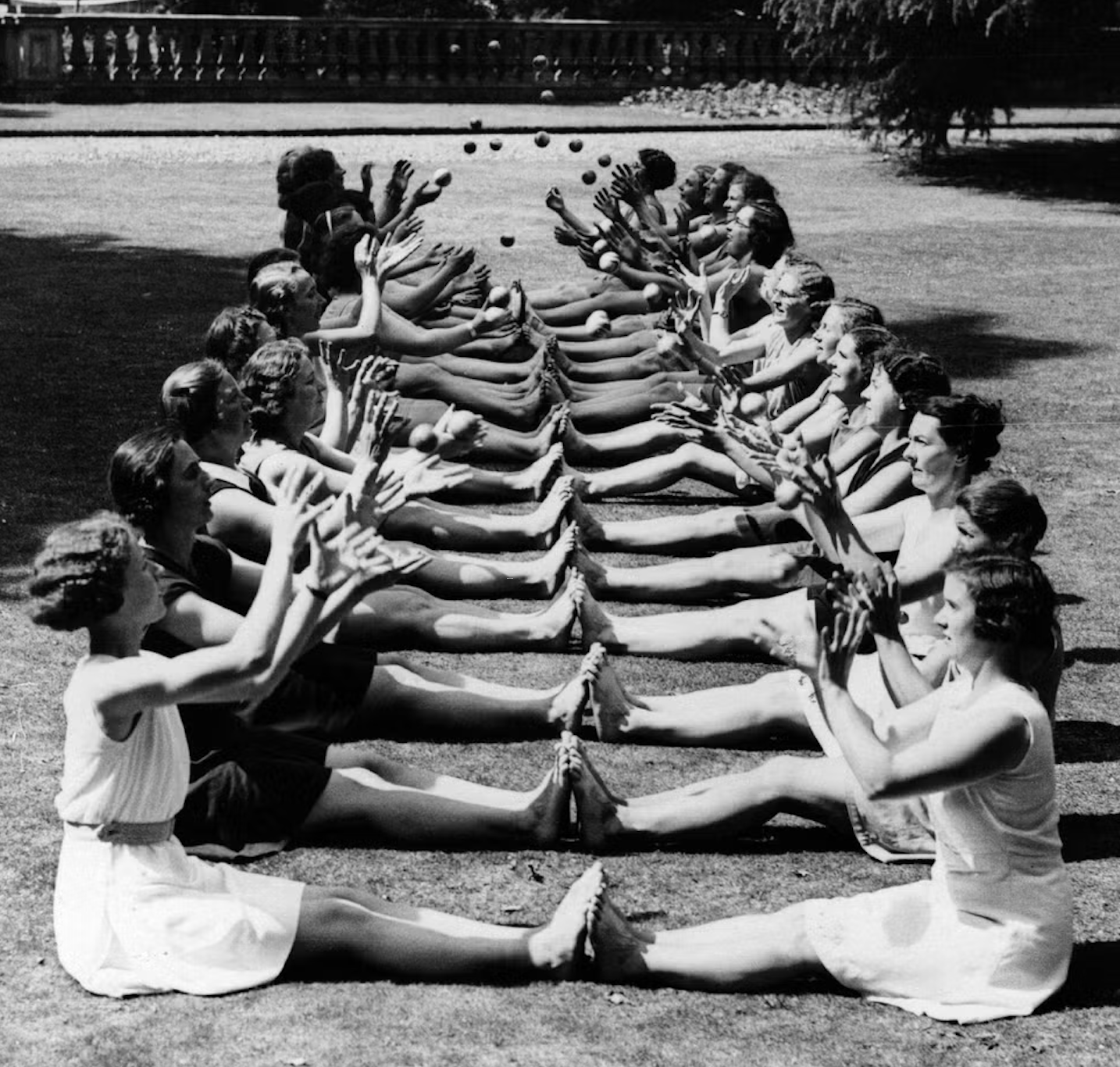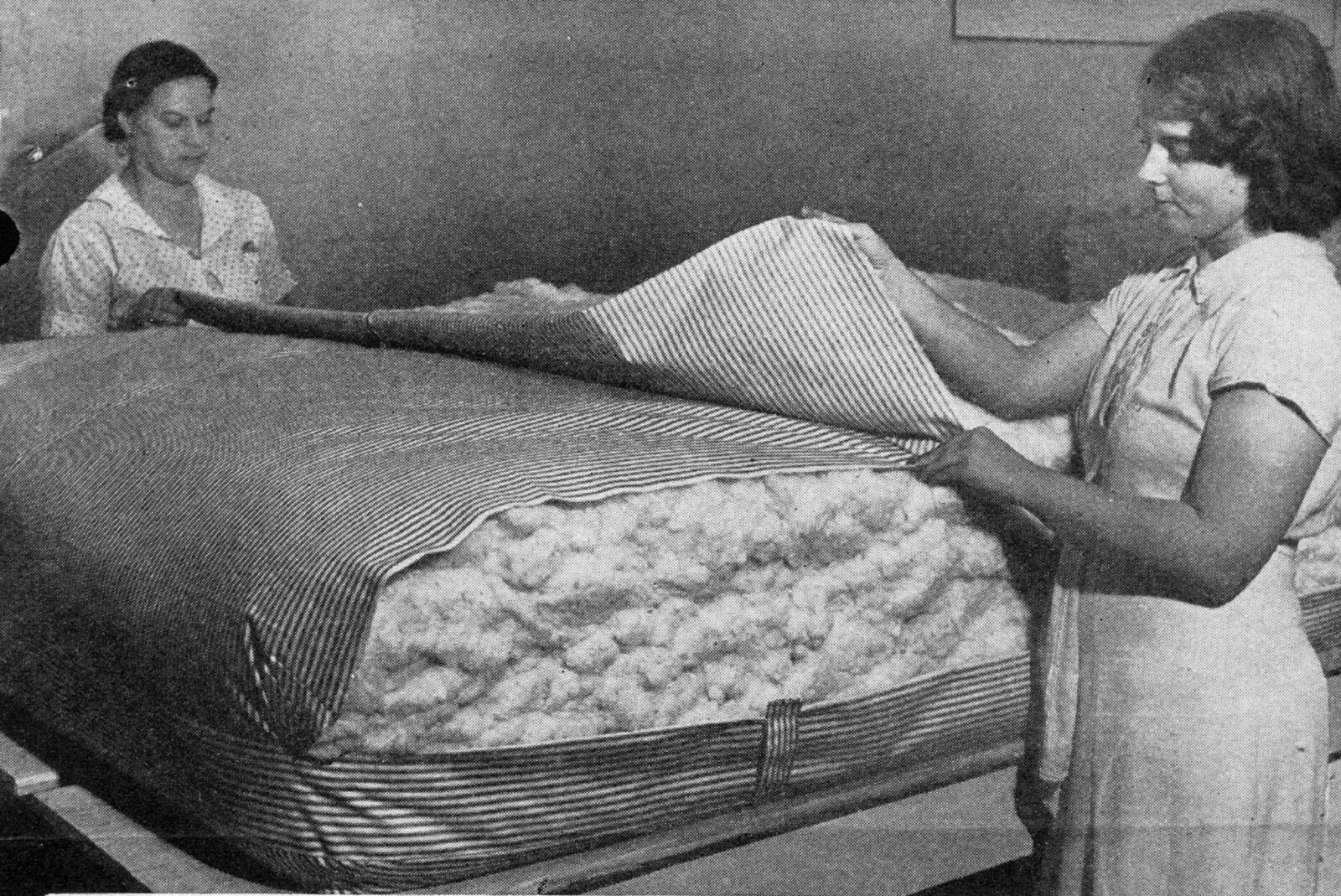
Home Bureau, Homemakers Extension & Craft Camp
In 1914 Congress passed The Smith-Lever Act which was signed into law by President Woodrow Wilson. One of the goals of this act was to create a Cooperative Agricultural Extension whose purpose was to improve rural living as well as family and community life. In July 1915, Kankakee County hired an advisor to develop a home improvement association to meet this goal.
In the beginning the idea of a home improvement advisor was very much misunderstood. Instead of looking at the advisor as a teacher, it was thought that she was a traveling maid. It was some time before the true function of this advisor took hold, but by 1919 the organization was providing value. In 1924 the twenty participating counties decided to unite into a state organization: the Illinois Home Bureau Federation.
By 1926 Play and Recreation were emphasized as such activities were scare in rural areas. As far back as the late twenties Play Days were organized by county Extension leaders as a way of encouraging strong, physical and mental rejuvenation. Early photos of McLean County Home Bureau Camp Lentz show campers in long cotton shifts standing in a circle ‘having a yell” as a way to begin the day.
Morning Exercise was also on the agenda, as well as arts and crafts and even tips on how to buy antiques. Another early photo of outdoor events shows a Wind-up Victrola being used as a group of young women practice their Charleston moves, while Adams County women sitting by the banks of the Mississippi River are shown learning how to weave.
The sharing of knowledge has long been a strong thread with Homemaker’s Extension and by default Homemaker’s Camp. For years Extension leaders sponsored Local Leader Lessons that focused on such important issues as home canning, childcare, food and nutrition, home nursing and even time management.
In 1926 a Better Bedding Committee lobbied for regulations regarding the stuffing of mattresses. At the time mattresses were often filled with old rags from which buttons had not even been removed. Dirt, rashes and infections were common. Homemakers worked for legislation requiring sanitary materials for stuffing, resulting in that all too familiar tag that we see today, threatening that it’s not to be removed under penalty of prison. Homemakers are also responsible for such important campaigns as immunizing children against Diphtheria. They helped to bring running water and electricity to many rural homes.
On the lighter side, story telling (especially the sharing of history) speaking, music and chorus contests were held. Skits, cooking contests and a lesson on home mural painting as well as a Dollar Dress contest were held. A Home Bureau Bulletin from Champaign County featured the guidelines on how many points would be awarded for workmanship, design, appearance and suitability for the fabric. Of equal importance was the fact that no dress could cost more than a dollar.
During the depths of the Depression, Home Bureau and Extension continued to expand into new counties as women began to realize these educational programs provided more value than ever. Growth occurred again during the war years where again homemakers were encouraged to do more with less. It is reported that in 38 counties 80,000 pounds of ‘waste fat’ was turned in to alleviate the shortage for manufacturing of soap and other war time necessities.
By the early 1950’s resolutions were passed supporting such projects as home nursing courses, having blood typed and becoming blood donors, having civil defense first aid courses. At a Women’s Conference detailed instructions were given on how to survive an atomic bomb. And conversations were growing about introducing Home Economics courses in schools.
Themed events have often been a part of Extension social activities as they are at camp now. Early photos show “Pioneer Party” events and “Frontier Days”. “Old Time Clothes” and “Top Hats and Tails” events demonstrate that even when tackling serious subjects, Homemakers could also have fun. Which remains our goal for this camp. Education, creativity and fun!
Note: While originally an extension of Homemaker’s Extension this camp became its own entity when we stepped away due to changes in State bi-laws that would prohibit this camp from remaining ‘only female’ campers.
While we love the smell of male cologne and have nothing against men in general (many of us are married to one, and are raising a of few of our own) this camp had been a female refuge for decades and we were not ready to make that change. That is when we officially became Illinois Homemakers Craft Camp v Illinois Homemakers Extension Craft Camp.
We are a not for profit organization and operate as a separate entity with all funds - should we ever disband -belonging to the 4-H Memorial Camp.






